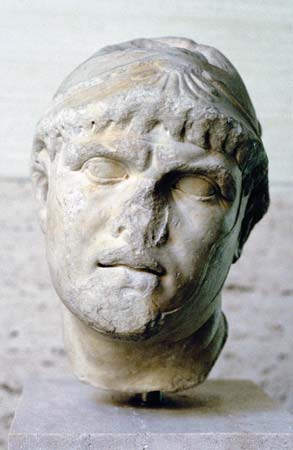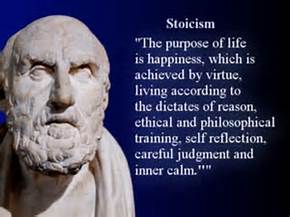| Who/What | When | Where | Why (Cause) | Significance (Result) | |
| Minoans | 2000-1450 | origins at Knossos, Crete https://blogger.googleusercontent.com/img/b/R29vZ2xl/AVvXsEh60wskJu0pcF1ibpkXiPmHWDjKmCXgGLoHqbtjJaSfxgRohW557HaYQxcq_Bhg8Z-5rlP77yHPoDhZ9kBmGHg2jHsLeBdG6T98cBFuOJK7r3jBQk6GRuV0bxHeVUatEFf2KkSlo_xIXs7V/s1600/minoanbronze_age_map.gif | bronze foundaries; Meditterranean, Agean,Black Sea shipping empire | The end of the Minoans correlates with the end of the Bronze Age resulting in the spread of Iron. | |
| Mycenaeans | 1600-1100 | origins on the Peloponesse Peninsula of Greece (see map in the Minoan link) | These early Greeks: took over Minoan trade routes, agressive expansion | Trojan War: Mycenae and Troy over economic rivalry (trade & expansion). Victors: Mycenaeans. | |
| Athenanians | Athens: continuiously inhabited for 5000 years (ca 3000 BC) | (see map of Greco-Persian Wars) | Foundation for Democracy, science, medicine, philosopy, history, theater | ||
| Spartans | apex 650-371 | primary, city-state of Lacedaemon in south-eastern Peloponnese. | http://www.ancientgreece.co.uk/sparta/home_set.html | The Spartan Army was instrumental in defeating the Persians. | |
| Olympics | first recorded 776 | on the plains of Olymipia, Greece | honor the Gods | Most important race was running. Every four years the city-states competed. | |
| Homer | 751-651 | b. Smyrna, Turkey- d. Ios, Greece | Illiad, Odyssey, blind wandering singer of ballads (poems) | ||
| Solon | 594 | Athens | built foundation for democracy; first government to include all people; release poor from their debts/slavery | ||
| Cleisthenes | 570-508 | Athens | reformed constitution; "Father [founder] of Athenean Democracy" | ||
| Pisistratus | r. 561-527 | ruled Athens | aided the poor; established the Panathenaic Festival (every 4yrs. contests in music, poetry, chariot racing,...) | ||
| Pericles | 495-429 | Buit Accropolis temples; Height of Athenean democracy(460) | |||
| Greco-Persian Wars | 490-479 | http://iranpoliticsclub.net/maps/images/038%20Greco-Persian%20Wars%20499%20BC-479%20BC%20Campaigns%202%20Map.jpg | Victors: Greek-city states | ||
| Battle of Marathon | 490 | First Persian Invasion | Greece repelled at the Battle of Marathon; first marathon-runner sent to Athens to tell of the victory | ||
| Herodotus | 484-425 | Greek historian | wrote The Persian Wars, encouraged research in histories | ||
| Battle at Thermopylae | 480 | Pass of Thermopylae | Second Persian invasion of Greeece;first battle | Greek allies with 300 Spartas (with King Leonaidas). The Spartas...held the pass for three days, then were encircled, and cut down to a man. Victor: Persians | |
| Battle at Salamis | 29 Sept. 480 | Naval Battle | Second Persian invasion of Greece; second battle | Victor: Athens | |
| Battle at Plataea | 479 | land battle | Second Persian Invasion of Greece; third battle | Victor Sparta; Persians did not continue. Longlasting peace in Greece led to The Classical Greek Age | |
| Golden Age of Athens/ Classical Greek Age | 479-404 (336) | Athens, Greece | The period of peace during which Greek advanced in philosopy, arts, medicine, histories, mathematics, and science. | Ends with Athens defeat during the Peloponnesian War . | |
| Socrates | 469-399 | Greek Philosopher | Sought truth & self-knowledge; "Socratic Method"= respond with a question; trial = choose exile or poison | ||
| Thucydides | 460-395 | Greek General and historian | wrote The Peloponnesian War; promoted unbiased writing of histories | ||
| Hippocrates | ca. 460-377 | "Father of Modern Medicine" | |||
| Peloponnesian War | 431-404 | http://www.ancient.eu/uploads/images/1260.png?v=1431030396 | 1) resentment of Athenian domination, 2) disagreement on form of government | Victor: Sparta and allies; Sparta became the leading influence in Greece until the Battle of Leuctra. The end of the Golden Age of Athens. | |
| Diogenes | ca.400-ca. 325 | Greek Philosopher | Cynicism | ||
| Decline of Poleis | 400-323 | Greece | conincides with the decline of Athens following the Peloponnesian War | ||
| Plato | 399-347 | Greek Philosopher | student of Socrates; teacher of Aristotle | favored rule of philosopher-king; worte The Republic, wrote The Apology explaining philosophy of Socrates | |
| Aristotle | 384-322 | Greek Philosopher | Student of Plato; Tutor of Alexander the Great | "golden mean"=balance of moral extremees; Wrote Politics=favored strong, virtuous leader; studied strengths and weaknesses of governments. | |
| Battle of Leuctra | July 6, 0371 | Thebes vs. Sparta | Victor: Thebes; Sparta never fully recovered militarily | ||
| Philip II of Macedonia | 359-336 | http://www.historyofmacedonia.org/AncientMacedonia/images/BEFORE_PHILIP1.jpg | Macedonian King who conquered Greece | While a hostage of the Greeks he learned their greatest military secret, the phalanx formation. | |
| Menander [məˈnandər] | ca.342-ca. 292 | Greek playwright | wrote 108 comedies; won Lenaia Festival 8 times. | ||
| Battle of Chaeronea | 2 August0338 | Philip II defeats combined forces of Athens and Thebes | Secured the Macedonian hegemony (politico–military dominance) over Greece and the Aegean | ||
| Alexander the Great | r.336-323 | Macedonia | conquered an empire | His empire stretched from Greece, Middle East, India, and Egypt; encouraged the spread of Greek culture throughout his empire. | |
| Hellenistic Kingdoms | 337-31 | http://www.ancient.eu/uploads/images/display-581.jpg?v=1431035398 | after Alexander's death; he had no royal heirs or appointed successors | Egypt, the Seleucid Empire, the Kingdom of Pergamon and Macedon (including Greece). Result: four full-scale wars followed by three kingdoms Egypt (w. southern Syria), Asian, and European. | |
| Herophilus | ca. 335-ca. 280 | Alexandria | Greek Physcian | Father of Anatomy; All his works lost in the destruction of the Library at Alexandria 272 AD, first to measure the pulse; cures: drugs, dietetics, and gymnastics | |
| Battle of Issus | 333 | southern Anatolia | second battle of Alexander's conquest of Asia | Macedonians (Alexander) vs. Persians (Darius III). Victor: Macedonians | |
| Alexander conquers Egypt | 332 | Egypt | Vicotor: Macedonia; Alexander crowned king; Founded city of Alexandria | ||
| Battle of Gaugamela (Arbela) | 1st October 331 | Plain of Gaugamela, near Arbela (present-day Irbīl in northern Iraq) | Decisive battle: Macedonnian - Hellenic League (Alexander) vs. Persian- Achaemenid (Darius III);Macedonias outnumbered, used a feint and flank; Darius Fled and his army paniced; Victor: Alexander of Macedonia | ||
| Persepolis destroyed | 330 | Parsa (`The City of the Persians’) in modern day Iran | Victor: Alexander the Great; The city was destroyed (cause still hypothesised) | ||
| Zeno | 321 | Stocism | |||
| Aristarchus | ca. 310-ca. 230 | heliocentric solar system | |||
| Epicurus | ca. 306 | philosopher | |||
| Lysimachus Kingdom | western Asia Minor, Thrace and Macedonia | kingdom built on sand | executed his heir for treson | ||
| Seleuid Kingdom | 305-64 | Babylon & much of Alexander's territories in the Near East | by 1st century BC the Seleuid Kingdom had faded away | ||
| Ptolemaic Egypt | 305-30 | Egypt | Ptoley was adviser to Alexander, appointed governor of Egypt, then King | ||
| Euclid | ca. 300 | Published Elements on mathematics | |||
| Archimedes | ca. 220 | advances enginering: theory of displacement, boyancy, "Eureka!" | |||
| Rosetta Stone | 205/197 | in Greek, demotic, and hierogyyphs | |||
| Hipparchus | 190-120 | Nicea | trigonometry, latitude, longitude, equinoxes | ||
| Maccabean Revolt | 166-164 | Judea | Antiochus IV, Epiphanessought to destroy all who worshiped God; mothers & circumcised infants were executed, defiled the Temple... | revolt against Seleucid Empire by the four sons of the priest Mattathias. The last son, Simon, negiated for the independence of Judah in exchange for support during the civil war over who would be the next king of the Seleucid Empire. | http://www.zianet.com/maxey/Inter3.htm |
| Rome | 131 | becomes dominant force in the Mediterranean | |||
| Compiled by Mrs. Julie Richey, M.A. | revised 9/23/2016 |
Friday, September 23, 2016
chart Greeks 2000-150 B.C.
Thursday, September 15, 2016
Greek Poleis, Hellenistic Kingdoms 337-31 B.C.: BC Timeline: Western Civilization I
BC Timeline: Western Civilization I
Greek Poleis, Hellenistic Kingdoms 337-31 B.C.
Compiled by Mrs.Julie Richey, M.A.
594 Solon appointed archeon of Athens 
Sherman Dennis and Joyce Salisbury. The West in the World: A History of Western Civilization
Solon Put Athens on the Road to Democracy The Rule of Law in Dangerous Times CONSTITUTIONAL RIGHTS FOUNDATION: Bill of Rights in Action. Fall 2006 (22:3)
500 Roman republic founded 1
495-429 Pericles leads Athens, builds Acropolis temples 14
490-479 Persian Wars with Greece 14, 30
490 First Persian invasion of Greece repelled at the Battle of Marathon; first marathon 14,30
480-479 Second Persian Invasion repelled 14
480 "Pass of Thermopylae" (Spartans betrayed; Persians won) 30, 31, 32, 34
29 September 480 naval battle at Salamis (Athens won) 30, 33, 34
479 land battle at Plataea (Spartans won) 30, 34
479-404 Golden Age of Athens 14, 35
479-336 Classical (Greece) Age 14, 35
469–399 Socrates 14, 37
37 Nails, Debra, "Socrates", The Stanford Encyclopedia of Philosophy (Spring 2014 Edition), Edward N. Zalta (ed.), URL = <http://plato.stanford.edu/archives/spr2014/entries/socrates/>. http://plato.stanford.edu/entries/socrates/
460 Age of Pericles ; height of Athenean democracy
; height of Athenean democracy
Ellis Elisabeth Gaynor and Anthony Esler. World History. https://tse1.mm.bing.net/th?&id=Ac13b2278517451a3f11b61188dfae58c&w=197&h=300&c=0&pid=1.9&rs=0&p=0&r=0 image of Pericles
ca. 460-377  Hippocrates “Father of Modern Medicine” 14, 36, 48
Hippocrates “Father of Modern Medicine” 14, 36, 48
431–404 Peloponnesian War (Athens vs. Sparta) 14, 34, 35,49
** 49 The Golden Age of Athens, student video summary. (5:29) https://www.bing.com/videos/search?q=pericles&&view=detail&mid=60AC85BC048B84D35CB460AC85BC048B84D35CB4&rvsmid=60AC85BC048B84D35CB460AC85BC048B84D35CB4&fsscr=0&FORM=VDMCNL
ca. 400 - ca. 325 Diogenes  advocates Cynicism 41, 50, 51 50 image of Diogenes http://dogsmakeeverythingbetter.files.wordpress.com/2013/02/diogenes_and_dog.jpg
advocates Cynicism 41, 50, 51 50 image of Diogenes http://dogsmakeeverythingbetter.files.wordpress.com/2013/02/diogenes_and_dog.jpg
51 video summary of “An Honest Man: Diogenes of Sinope” (7:26) https://www.bing.com/videos/search?q=Diogenes+Honest+Man&&view=detail&mid=F2C02A9880430D59E44AF2C02A9880430D59E44A&FORM=VRDGAR
400 -323 Decline of the Poleis (democratically ruled city-states of Ancient Greece) 41
399 Death of  Socrates 14, 37, 53, 54
Socrates 14, 37, 53, 54
53 image of Socrates, “The Test of Three”. http://www.the-open-mind.com/socrates-the-test-of-three-1/
54 Plato’s Republic; explanation of Socratic Method. https://www.scu.edu/character/resources/education-in-platos-republic/
5 July 371 Spartans were defeated by Thebes at the Battle of Leuctra
https://www.bing.com/videos/search?q=Time+Commanders+Leuctra&&view=detail&mid=C13B32F8BC9FF7C1502CC13B32F8BC9FF7C1502C&rvsmid=A8A8DD19BA604D3C7F61A8A8DD19BA604D3C7F61&fsscr=0&FORM=VDQVAP Time Commanders, BBC game
399-347 Plato flourishes 14, 39,
Plato’s Republic; explanation of Socratic Method. https://www.scu.edu/character/resources/education-in-platos-republic/
359-336  Philip II rules Macedonia
Philip II rules Macedonia 
52 image of King Philip II of Macedonia https://www.britannica.com/biography/Philip-II-king-of-Macedonia/images-videos/Philip-II-undated-bust/112270
Hoplite phalanx formation image
ca. 342 - ca. 292  Life of playwright Menander
Life of playwright Menander
image with quote
“From Greek to Roman Theater Architecture ” https://www.bing.com/videos/search?q=Menander+Dramatist&&view=detail&mid=33D2E4CF2CB5D5365BBE33D2E4CF2CB5D5365BBE&rvsmid=71F86E6EA524B6999D1C71F86E6EA524B6999D1C&fsscr=0&FORM=VDMCNR
338 Philip conquers Greece  https://tse1.mm.bing.net/th?&id=OIP.Maa074fd51289a99c7b814a31137881cfo0&w=300&h=208&c=0&pid=1.9&rs=0&p=0&r=0 map image
https://tse1.mm.bing.net/th?&id=OIP.Maa074fd51289a99c7b814a31137881cfo0&w=300&h=208&c=0&pid=1.9&rs=0&p=0&r=0 map image
“Macedonia vs City States at the Battle in Chaeronea - Documentary” (8:29)
337/336-323 Alexander the Great rules  image https://www.bing.com/images/search?q=alexander+the+great&view=detailv2&&id=7351D0953C4D456291E2CED799235F70C4B19E2B&selectedIndex=6&ccid=x%2bbVjeIh&simid=608002980396729737&thid=OIP.Mc7e6d58de2211d79dd19f2825709ab44o0
image https://www.bing.com/images/search?q=alexander+the+great&view=detailv2&&id=7351D0953C4D456291E2CED799235F70C4B19E2B&selectedIndex=6&ccid=x%2bbVjeIh&simid=608002980396729737&thid=OIP.Mc7e6d58de2211d79dd19f2825709ab44o0
http://www.foxnews.com/science/2016/09/12/rare-discovery-ancient-synagogue-mosaic-may-depict-alexander-great.html new mosaic uncovered in Israel
337-31 Hellenistic Kingdoms was the absolute rule by kings after the death of Alexander until the rise of Rome. 41
ca. 335 - ca. 280 Life of physician Herophilus  https://www.bing.com/images/search?q=Herophilus%27+Tools&view=detailv2&&id=7DF831FC6985A767BF77D67000070C03E35D04A0&selectedIndex=9&ccid=KXwdhlLo&simid=608030588443362922&thid=OIP.M297c1d8652e8659370b5e87675759a95o0 image of quote
https://www.bing.com/images/search?q=Herophilus%27+Tools&view=detailv2&&id=7DF831FC6985A767BF77D67000070C03E35D04A0&selectedIndex=9&ccid=KXwdhlLo&simid=608030588443362922&thid=OIP.M297c1d8652e8659370b5e87675759a95o0 image of quote
https://www.bing.com/images/search?q=Herophilus%27+Tools&view=detailv2&&id=7DF831FC6985A767BF77D67000070C03E35D04A0&selectedIndex=9&ccid=KXwdhlLo&simid=608030588443362922&thid=OIP.M29(7c1d8652e8659370b5e87675759a95o0 medical dictionaries & periodicals summaried
Father of Anatomy (used dissection)
333 Battle of Issus
“Alexander The Great The Battle Of Issus” (44:46) Narration: Brian Cox https://www.youtube.com/watch?v=ds_g_QiFsBE
332 Alexander conquers Egypt 41
Established Alexandria at the mouth of the Nile River.
14 November 332 Alexander’s coronation as Pharaoh of Egypt
1st October 331 Battle of Gaugamela (Arbela):
Alexander the Great of Macedon (victor) vs. King Darius III of Persia. 41, 45
330 Alexander destroys Persepolis (Persian capital) https://www.bing.com/videos/search?q=330+Alexander+destroys+Persepolis&view=detail&mid=BD37EC1A63BC787EDE41BD37EC1A63BC787EDE41&FORM=VIRE (7:46) “Destroying of Persepolis - End of the Persian empire”
323 Alexander the Great dies
Successor kingdoms established (Seleucid, Ptolemaic, Antigonid, ...) 41
Hellenistic Age begins 42
322 Death of Aristotle 14, 40
321 Zeno founds Stoicism  https://www.bing.com/images/search?q=321+Zeno+founds+Stoicism&view=detailv2&&id=553405F0BE9916F25EEB86FCB1B5A4E1FE369619&selectedIndex=2&ccid=VBlFO%2bEm&simid=607987857817732482&thid=OIP.M5419453be126adfb6b835667b810dc09o0
https://www.bing.com/images/search?q=321+Zeno+founds+Stoicism&view=detailv2&&id=553405F0BE9916F25EEB86FCB1B5A4E1FE369619&selectedIndex=2&ccid=VBlFO%2bEm&simid=607987857817732482&thid=OIP.M5419453be126adfb6b835667b810dc09o0
ca. 310 - ca. 230 Life of Aristarchus, who posited heliocentric universe
(sun at center with other bodies revolving around the sun)
ca. 306 Epicurus founds school of philosophy  http://www.bentleywoodbridge.com/magazine/wp-content/uploads/2014/06/Epicurus-Quotes-2.jpg image
http://www.bentleywoodbridge.com/magazine/wp-content/uploads/2014/06/Epicurus-Quotes-2.jpg image
305-64 Seleucid Kingdom (Babylon and much of Alexander’s territories in the near east.)
305-30 Ptolemaic Egypt
ca. 300 Euclid published Elements on mathematics.  http://www.touregypt.net/images/touregypt/mouseion8.jpg image
http://www.touregypt.net/images/touregypt/mouseion8.jpg image
264-146 Punic Wars (series of three wars between Rome and Carthage)
ca. 220 Archimedes advances engineering. 
(theory of displacement, boyancy) https://www.bing.com/images/search?q=Archimedes+Eureka+Moment&view=detailv2&&id=168A3681280332EF4EF285E8E26EE5CE4AC142A2&selectedIndex=0&ccid=4uUIz%2fpc&simid=608054086209831011&thid=OIP.Me2e508cffa5c3774bcf11902992a8d1fo0 image
https://www.bing.com/videos/search?q=Who+Said+Eureka&&view=detail&mid=0865C79A5F8B24C07C330865C79A5F8B24C07C33&FORM=VRDGAR The real story behind Archimedes’ Eureka! - Armand D'Angour (4:41)
205 Rosetta Stone records the coronation of Ptolemy V in Greek, demotic, and hieroglyphic scripts. 3
197 Rosetta Stone 
190-120 Hipparchus of Nicaea (trigonometry, latitude, longitude, equinoxes) http://www.astro.cornell.edu/academics/courses/astro201/hipparchus.htm
166-164 Maccabean Revolt 
131 Rome becomes the dominant civilization in the Mediterranean 42
Greek Poleis, Hellenistic Kingdoms
41 Sherman Dennis and Joyce Salisbury. The West in the World: A History of Western Civilization 5th ed. New York: NY: McGraw Hill Education ISBN: 978-0-07-340703-6 pp.74-101
42 Ellis Elisabeth Gaynor and Anthony Esler. World History. Upper Saddle River, New Jersey: Pearson Prentice Hall. 2009. ISBN:978-0-13-365191-1
https://quizlet.com/19543357/western-civilization-exam-one-flash-cards/ Note, these flashcards cover a longer period than this timeline.
Subscribe to:
Comments (Atom)